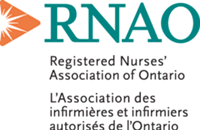Nursing guideline helps overcome stigma of Methadone
For nurses who encounter MMT clients during the course of their work, the recently published Registered Nurses' Association of Ontario (RNAO) MMT guideline is a welcome resource. The guideline ensures that nurses have the latest evidence-based information to enhance their practice and strengthen and improve care for MMT clients.
The costs of untreated opioid addiction include health care, law enforcement, social assistance and loss of economic productivity. In the past, heroin has been the most commonly misused opioid in
Nurses are an integral part of the health-care system and in a unique position to address stigmas and to reduce barriers to care. They are often the first contact that people have with the health-care system and - even if they do not work directly in addiction areas, they do encounter MMT clients especially in the Emergency and Maternity departments. This guideline allows them to recognize the signs and symptoms of substance abuse, understand treatment options and have an appreciation for the stigmas and biases often associated with this population. Irmajean Bajnok, director of the International Affairs and Best Practice Guideline Program at RNAO, says the guideline recommends that nurses consider social determinants of health when carrying out assessments and interventions. She says, "factors such as housing, income, social status and stress impact the health of all people, but their influence can be more pronounced in this group."
According to
The development of this guideline started in
Quick Facts:
- Addiction is characterized by the compulsive and continued misuse of a
substance, despite its overtly negative consequences. Addiction makes
it extremely difficult to stop using a substance, despite having tried
quitting one or more times.
- Harmful consequences of addiction consist of physical illness, family
breakdown, economic issues, criminal involvement and a high risk of
overdose leading to death.
- Methadone is a safe, synthetic opioid which prevents or reduces the
withdrawal effects of opioid dependence. It is commonly used to treat
dependence on other opioid drugs such as heroin, codeine and morphine.
It's treatment not a cure.
- Women who are addicted to opioid drugs and who are pregnant are often
treated with methadone to protect their fetus, since opioid withdrawal
can increase the risk of miscarriage or premature birth.
- MMT is part of a harm reduction model which recognizes that substance
misuse occurs and will continue to occur within society and it seeks
to provide appropriate and accessible services without the barriers of
stigma and negative labels.
- MMT as a harm reduction strategy seeks to reduce misuse of drugs,
improve quality of life, retain people in treatment programs, reduce
crime, decrease risk of death from overdoses, improve pregnancy
outcomes and improve social health and productivity.
The Registered Nurses' Association of Ontario (RNAO) is the professional association representing registered nurses in Ontario. Since 1925, RNAO has advocated for healthy public policy, promoted excellence in nursing practice, increased nurses' contribution to shaping the health-care system, and influenced decisions that affect nurses and the public they serve.
RNAO's ambitious Best Practice Guidelines Program, funded by Ontario's Ministry of Health and Long-Term Care, was launched in 1999 to provide the best available evidence for patient care across a wide spectrum of health-care areas. The 42 guidelines developed to date are a substantive contribution towards building excellence in Ontario's health-care system. They are available to nurses, other health-care professionals and organizations across
For more information about RNAO, visit our website at www.rnao.org
Check out our Facebook page at www.rnao.org/facebook
Or follow us at www.twitter.com/rnao
For further information: or to interview a nurse, please contact: Suriya Veerappan, Media Relations Coordinator, Registered Nurses' Association of Ontario, Work phone: (416) 907-7956, Cell: (647) 504-4008, Toll-free: 1-800-268-7199 ext.253, E-mail: [email protected]

Share this article